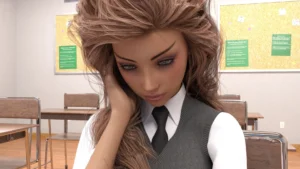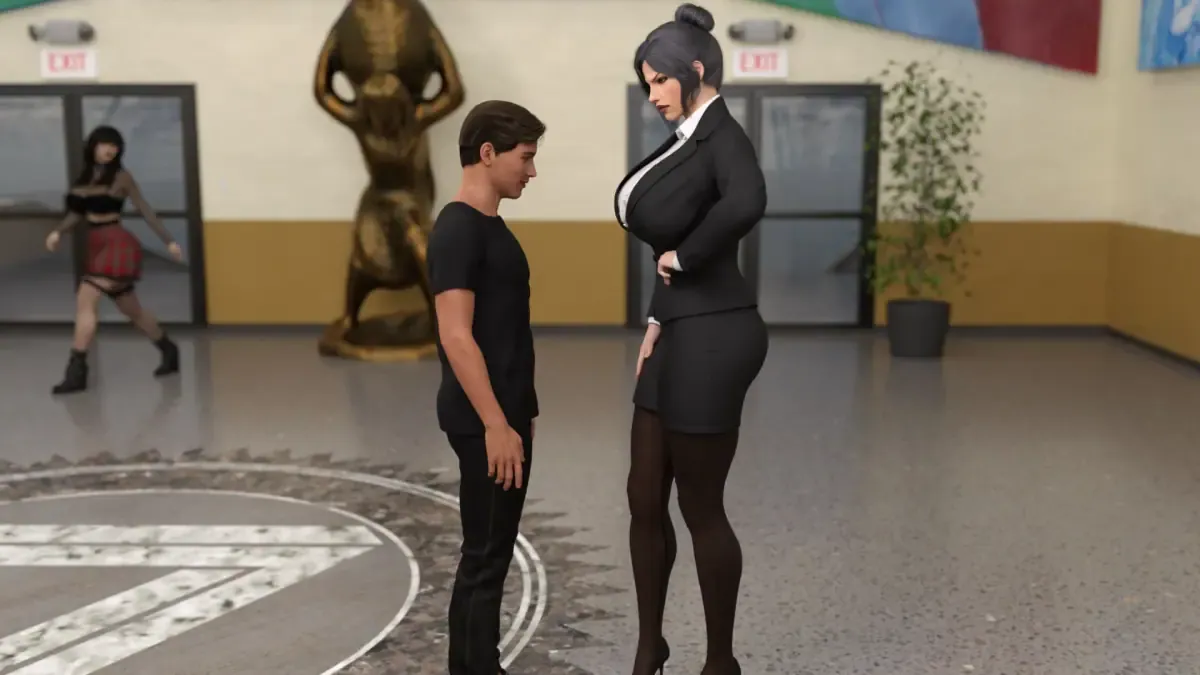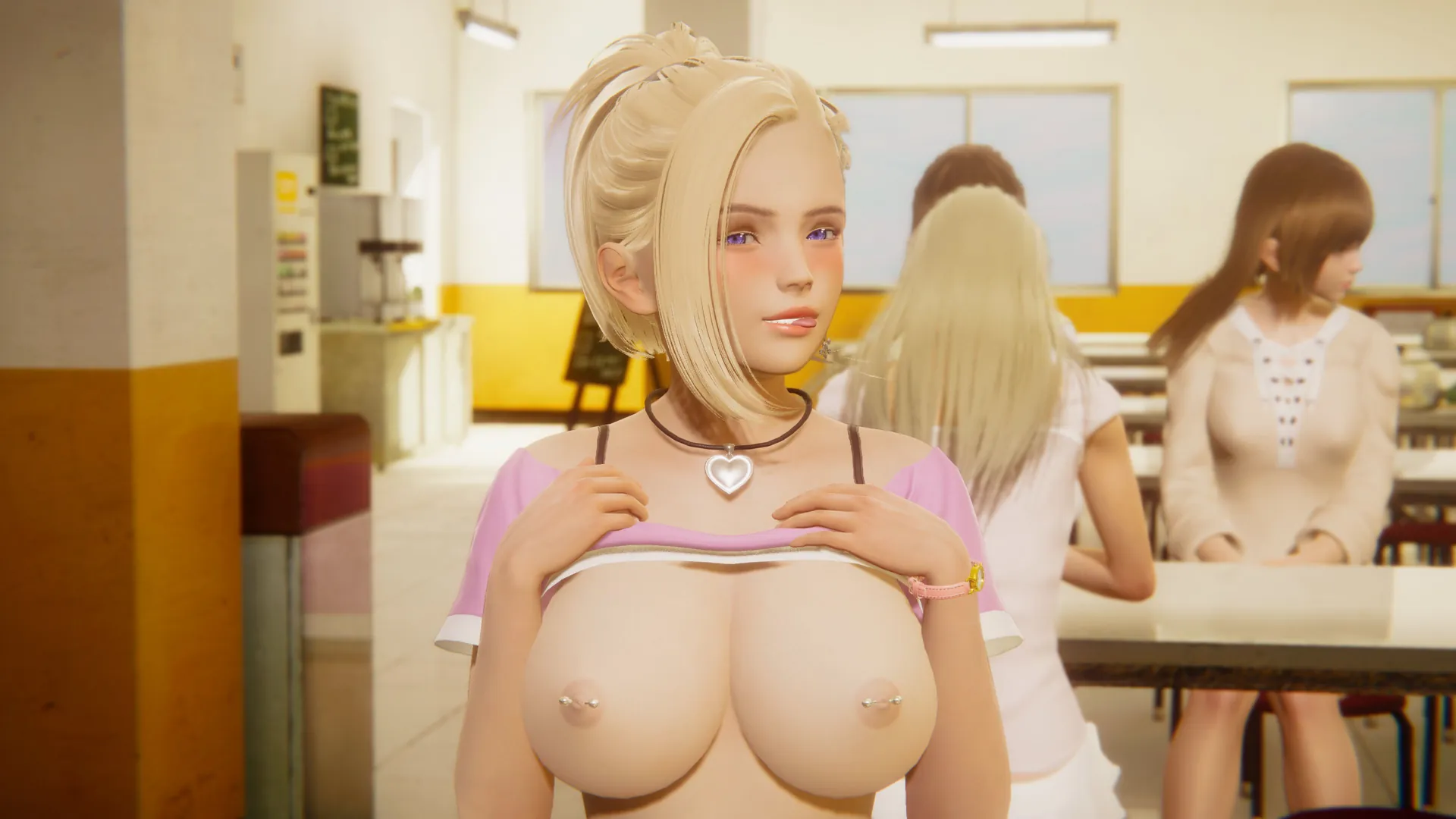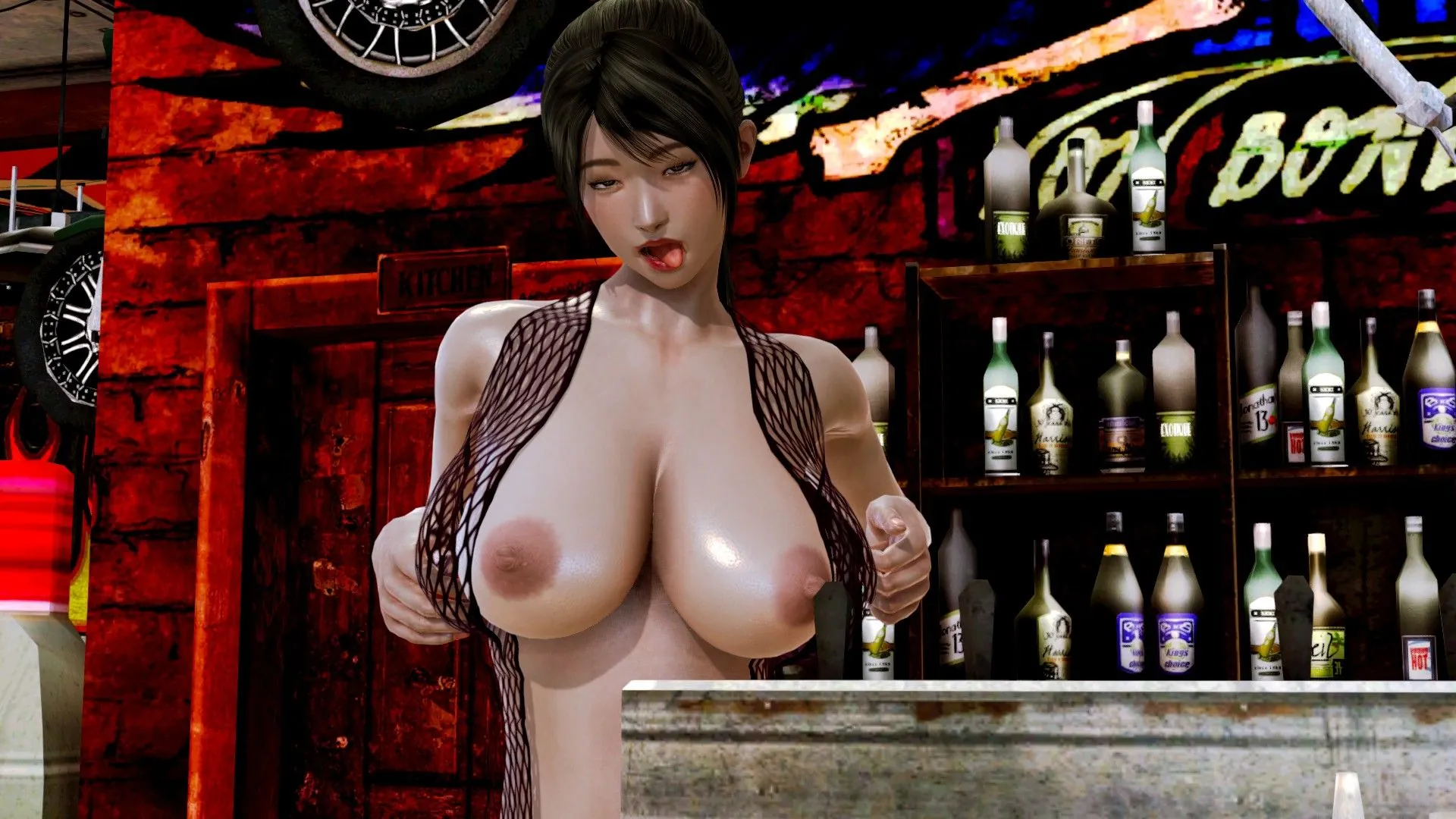
Annie’s School Days
Play Annie’s School Days
Annie’s School Days review
A Deep Dive into the Adult-Themed Visual Novel Experience
Annie’s School Days has sparked intense debate since its 2024 release, blending provocative storytelling with strategic decision-making. This adult-oriented visual novel challenges players to navigate complex relationships while managing character dynamics. While not suitable for all audiences, its unique stat-driven gameplay and branching narratives warrant examination of its design philosophy and cultural impact.
Core Game Mechanics and Narrative Structure
Character Stat Management System
Let’s cut to the chase: Annie’s School Days doesn’t play nice with cookie-cutter storytelling. 🎮💥 At its core, the game’s adult visual novel mechanics revolve around three very loaded stats: shame, submission, and lust. Think of these as your emotional GPS—mess with one, and you’re veering into wildly different story territory.
Here’s how it works: Every dialogue choice, flirtatious glance, or risky decision nudges these metrics up or down. Push lust too high early on, and Annie might skip the slow-burn tension for a steamy scene that locks you out of deeper character arcs. Let shame dominate, and suddenly you’re trapped in a spiral of self-doubt that reshapes how classmates interact with you. It’s like balancing on a tightrope while juggling chainsaws—one wrong move, and the narrative explodes. 🔥
Take my first playthrough, for example. I tried to play Annie as a confident rebel, cranking up submission during confrontations with authority figures. Big mistake. By mid-game, the story railroaded me into a power dynamic I hadn’t seen coming, all because I’d ignored how those choices quietly reshaped character relationship dynamics. The game doesn’t just react to your decisions—it remembers them, weaving consequences into every future interaction.
| Stat Threshold | Story Outcome |
|---|---|
| Shame ≥ 70% | Isolation arc triggers; romantic options vanish |
| Submission ≥ 50% | Unlocks dominant NPC story paths |
| Lust ≥ 80% | Forces short-term relationships; limits emotional depth |
💡 Pro tip: Check the game’s “Stat History” menu religiously. It shows how key moments snowballed into your current mess—or masterpiece.
Branching Storylines and Endings
If you think visual novels are just “click until the credits roll,” Annie’s School Days will humble you faster than a pop quiz. 📚💔 With branching narrative paths that split and merge based on your stats, the game’s 14 endings range from bittersweet solitudes to chaotic polyamorous crescendos.
What’s wild is how player choice consequences aren’t always immediate. A seemingly harmless lunchroom conversation in Chapter 2 might resurface in Chapter 6 as a full-blown betrayal. During one playtest, I shrugged off a bully’s taunt, only to realize later that my “avoidance” tactic had silently boosted shame, locking me into an ending where Annie drops out entirely.
Key factors that twist the story’s direction:
– 🔄 Relationship balance: Prioritizing one character’s arc often sabotages another
– ⚖️ Stat ratios: High lust + low submission = radically different dialogue trees
– 🕰️ Timing: Early-game choices have heavier weight than late-game decisions
The game’s flowchart system (unlocked after your first ending) reveals just how intricate these branching narrative paths truly are. One path I stumbled into required maintaining all three stats between 40-60%—a near-impossible feat that rewards you with the game’s most emotionally nuanced conclusion.
Ethical Considerations in Interactive Design
Let’s address the elephant in the classroom: interactive storytelling ethics in adult games. 🐘🎭 Annie’s School Days walks a razor’s edge here. On one hand, its adult visual novel mechanics empower players to explore taboo fantasies. On the other, it risks normalizing toxic dynamics if handled carelessly.
The developers clearly grappled with this tension. Notice how the game:
1. Flags irreversible decisions with a bright red “Point of No Return” warning
2. Locks extreme content behind multiple consent checkpoints
3. Rewards emotional intelligence—prioritizing communication boosts relationship stability
But here’s where it gets murky. During a controversial scene where Annie can manipulate a friend’s insecurity, the game doesn’t intervene. I watched a streamer exploit this loophole, maxing out submission stats to force a character into compliance. While technically “allowed,” it sparked heated debates about player choice consequences in morally gray scenarios.
“Do games have a responsibility to curb harmful playstyles, or is that censorship?” – A question the game forces you to confront.
My take? Annie’s School Days works best when treated as a mirror, not a playground. Its character relationship dynamics reflect back the values you bring to it. If you’re here for cheap thrills, you’ll find them—but you’ll also hit narrative dead-ends that feel emptier than a skipped class.
🛠️ Want to play responsibly?
– Set personal boundaries before diving in
– Use multiple save slots to experiment without guilt
– Discuss choices with friends—the game’s themes beg for conversation
Love it or hate it, Annie’s School Days doesn’t let you spectate. You’re in the driver’s seat—but remember, even virtual roads have real-world potholes. 🚗💨
While Annie’s School Days pushes boundaries in interactive storytelling, it raises important questions about responsibility in adult-oriented game design. Players should approach its content critically, while developers must balance creative ambition with ethical considerations. For those interested in narrative-driven games, exploring alternative visual novels with similar mechanics but different themes might provide comparable engagement without controversy.





















